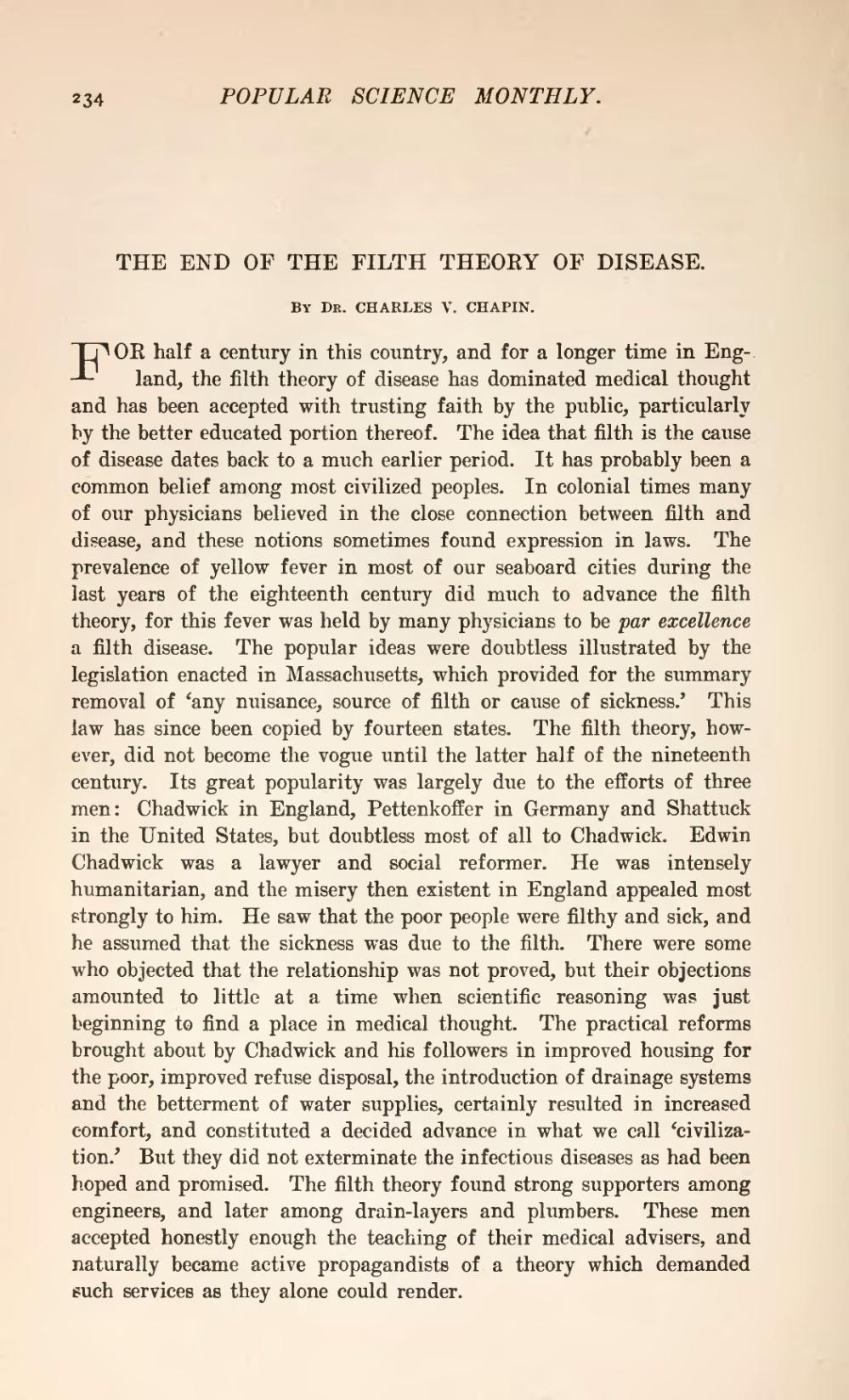| THE END OF THE FILTH THEORY OF DISEASE. |
By Dr. CHARLES V. CHAPIN.
FOR half a century in this country, and for a longer time in England, the filth theory of disease has dominated medical thought and has been accepted with trusting faith by the public, particularly by the better educated portion thereof. The idea that filth is the cause of disease dates back to a much earlier period. It has probably been a common belief among most civilized peoples. In colonial times many of our physicians believed in the close connection between filth and disease, and these notions sometimes found expression in laws. The prevalence of yellow fever in most of our seaboard cities during the last years of the eighteenth century did much to advance the filth theory, for this fever was held by many physicians to be par excellence a filth disease. The popular ideas were doubtless illustrated by the legislation enacted in Massachusetts, which provided for the summary removal of 'any nuisance, source of filth or cause of sickness.' This law has since been copied by fourteen states. The filth theory, however, did not become the vogue until the latter half of the nineteenth century. Its great popularity was largely due to the efforts of three men: Chadwick in England, Pettenkoffer in Germany and Shattuck in the United States, but doubtless most of all to Chadwick. Edwin Chadwick was a lawyer and social reformer. He was intensely humanitarian, and the misery then existent in England appealed most strongly to him. He saw that the poor people were filthy and sick, and he assumed that the sickness was due to the filth. There were some who objected that the relationship was not proved, but their objections amounted to little at a time when scientific reasoning was just beginning to find a place in medical thought. The practical reforms brought about by Chadwick and his followers in improved housing for the poor, improved refuse disposal, the introduction of drainage systems and the betterment of water supplies, certainly resulted in increased comfort, and constituted a decided advance in what we call 'civilization.' But they did not exterminate the infectious diseases as had been hoped and promised. The filth theory found strong supporters among engineers, and later among drain-layers and plumbers. These men accepted honestly enough the teaching of their medical advisers, and naturally became active propagandists of a theory which demanded such services as they alone could render.

